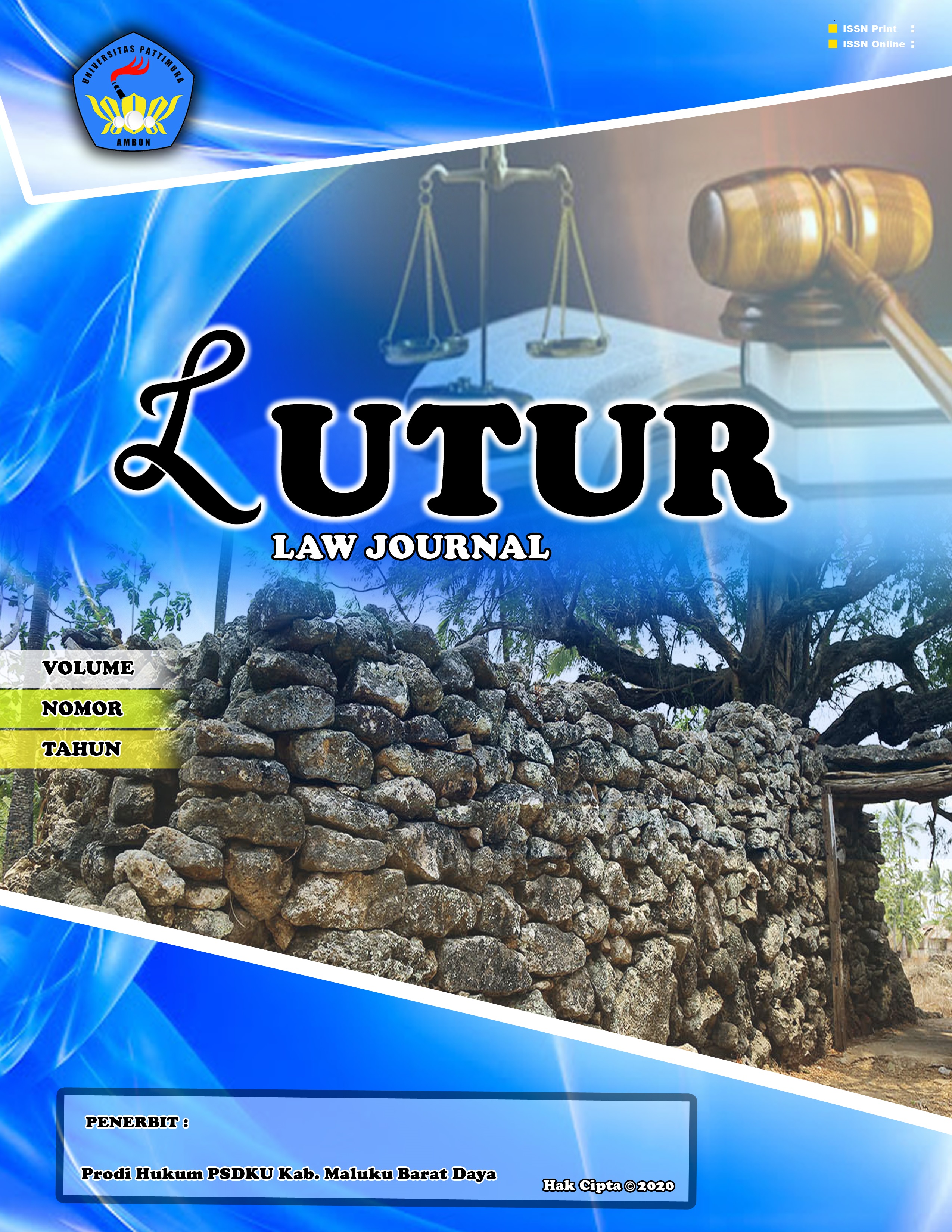Perlindungan Hukum Bagi Debitur Terhadap Kreditur Pada Perjanjian Kredit Di Koperasi Simpan Pinjam
Abstract
Law Number 17 of 2012 regulates cooperatives, one form of which is savings and loan cooperatives which aims to improve the welfare of members in particular and society in general, as well as being an inseparable part of a democratic and just national economic order, but in reality cooperatives savings and loans are very difficult for members or the community as debtors because the agreement is only made unilaterally, namely from the cooperative and there is no clarity regarding fines and interest if the debtor is late in paying, this makes the debtor feel very disadvantaged. This research method is a normative method that is descriptive. Which consists of research types, the problem approach used is a statutory approach and a conceptual approach, legal materials consisting of primary legal materials, secondary legal materials and tertiary legal materials, procedures for collecting legal materials, and finally processing and analysis of legal materials. The research results show that the implementation of credit in savings and loan cooperatives begins with entering into a credit agreement, the parties have rights and obligations that must be fulfilled. Debtors are obliged to pay installments, fines and interest, while creditors have an obligation to pay installments, provide explanations and understanding to debtors about the contents of the agreement, payment of installments, fines and interest. Legal protection for debtors in credit agreements, namely preventive legal protection and repressive legal protection. Preventive Legal Protection means that the debtor receives clear information regarding the rights and obligations contained in the contents of the credit agreement between the debtor and the cooperative, while Repressive Legal Protection is an effort to resolve problems when a dispute occurs. In this case, the debtor can submit complaints and complaints to the Financial Services Authority (OJK) if they feel disadvantaged. Therefore, cooperatives must be more selective in providing loans to debtors, so that the loans provided do not have problems because this can disrupt the cooperative's finances. And the cooperative must supervise the debtor in using the loan so that the loan can be returned to the cooperative in accordance with the agreement. The government, in this case, the OJK, must increase supervision of savings and loan cooperatives, the OJK must supervise the regulations made by the cooperative. The community must increase financial literacy by providing gradual socialization about the benefits and risks of using cooperatives.
Downloads
References
Artikel Jurnal
Ni Made Ayu Pratiwi, I Nyoman Putu Budiartha, Ni Komang Arini Styawati, Akibat hukum Perjanjian Pinjam- meminjam Uang Yang Dinyatakan Batal Demi Hukum, Jurnal Konstruksi Hukum 2.2 (2021): 367-372.
Rizka Astri Husen, Nancy Silvana Haliwela, Agustina Balik. “Pertanggungjawaban Debitur Terhadap Kreditur Pada Perjanjian Kredit Dengan Jaminan Fidusia.” PATTIMURA Law Study Review 1. 1 (2023): 102-110.
Buku
Gatot Supramono, Hukum Yayasan di Indonesia, Rineka Cipta, Jakarta, 2007.
Kartini Muljadi dan Gunawan Widjaja, Perikatan Pada Umumnya, Raja Grafindo Persada, Jakarta, 2003.
M. Sinungan, Dasar-Dasar dan Teknik Manajemen Kredit, Jakarta, Bina aksara, 1995.
Miriam darus Badrulzaman, Aneka Hukum Bisnis, Jakarta: Alumni, 1983.
Rima Elya Dasuki dan Yuanita Indriani, Kajian Kinerja Usaha Koperasi, Semiotika, Jawa Barat, 2019.
Ripho Delzy Perkasa, Ekonomi Koperasi, Medan, 2020.
Sudikno Mertokusumo, Mengenal Hukum Suatu Pengantar, Yogyakarta, Liberty, 1999.
Peter Mahmud Marzuki, 2009, Pengantar Ilmu Hukum, Kencana, Jakarta, 2009.
Yohanes Benny Apriyanto, Penyelesaian Kredit Bermasalah Pada Bank DKI Jakarta Cabang Solo Melalui Jalur Non, Litigasi, Jurnal Hukum Ekonomi dan Bisnis, Universitas Atmajaya Yogyakarta, 2015.
Copyright (c) 2024 Gabriela Sapardi, Nancy Silvana Haliwela, Marselo Valentino Geovani Pariela (Author)

This work is licensed under a Creative Commons Attribution-NonCommercial 4.0 International License.
Authors who publish their manuscripts in this Journal agree to the following conditions:
- The copyright in each article belongs to the author, as well as the right to patent.
- Authors are able to enter into separate, additional contractual arrangements for the non-exclusive distribution of the journal's published version of the work (e.g., post it to an institutional repository or publish it in a book), with an acknowledgment of its initial publication in this journal.
- Authors are permitted and encouraged to post their work online (e.g., in institutional repositories or on their website) prior to and during the submission process, as it can lead to productive exchanges, as well as earlier and greater citation of published work.
- Authors have the right to self-archiving of the article (Author Self-Archiving Policy)














